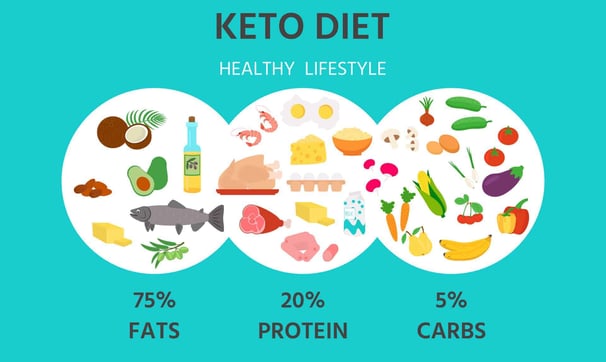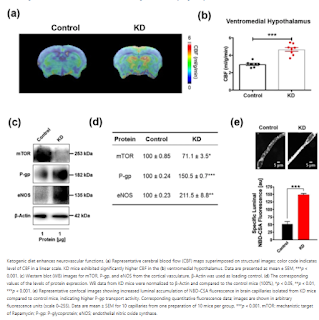How To Improve Your Mental Health With The Ketogenic Diet
MENTAL HEALTH AND THE GUT


A study published on Nature in 2018 provides evidence of the association between Ketogenic diet and neurological health.
KETO: A SCIENTIFICALLY PROVEN DIET TO IMPROVE YOUR HEALTH
A study published on Nature in 2018 provides evidence of the association between Ketogenic diet and neurological health.
Ketogenic diet or keto diet, is a high fat and low carbohydrate diet, proven to be effective against several neurological issues, such as autism and epilepsy and Alzheimer’s disease.
The authors studied the effect of the Ketogenic diet (KD) in 12-14 weeks old mices. They were separated into two groups: one received the ketogenic diet, the other did not (control group). More especifically, the KD group were fed 7.24 kcal/gm paste, containing 75.1% fat (composed of saturated, monounsaturated, and polyunsaturated fatty acids), 8.6% protein, 4.8% fiber, 3.2% carbohydrates, 3.0% ash, and less than 10% moisture. Meanwhile the control group received a diet of 3.79 kcal/gm pellets composed of 65.2% carbohydrates, 18.1% protein, 5.1% fat, 4.8% fiber, 2.9% ash, and less than 10% moisture.
The mices were all weighned and their food intake taken in consideration.
Fecal samples were collected from each group in order to analyze the gut microbiome. Cerebral blood flow (CBF) was also measured, with magnetic resonance imaging. At last, confocal microscopy was used to determine blood-brain-barrier (BBB). Reduced cerebral blood flow is associated with depression, anxiety and dementia. While an impared blood-brain-barrier is associated with neuroinflammation, synaptic dysfunction, and psychiatric disorders.
The results the authors found and a brief discussion:
. Both groups did not differ significantly in regards to food intake.
. Mices on keto diet had a much higher cerebral blood flow than on the control group.
KETO: A PROVEN AND POWERFUL DIET TO IMPROVE MENTAL HEALTH
. Keto diet enhanced neurovascular function and increase amyloid-beta (Aβ) clearance. It was done by the Keto diet increasing P-glycoprotein (P-gp) which transports amyloid-beta (Aβ) across the blood-brain-barrier. Amyloid-beta is abundant in Alzheimer's patients, it is naturally produced in the brain, its production is increased as we age. However, its accumulation favors the formation of plaques, negatively affecting memory. Thus, the Keto diet favoured the reduction of toxicity by Aβ, providing clearance for brain tissue.


Related Stories
. KD mices and non-KD mices differend in gut microbiome. The first group experienced a shift in the gut microbiota composition, resulting in less diversity. However, such shift increased the abundance of beneficial microbiota species, some which protect the neurovascular integrity. Besides that, KD also decreased the microbiota that cause inflammation.
. KD regulates body weight and reduces blood glucose level, reducing the chance of developing diabetes.
. KD increased nitric oxide synthase (eNOS), which is associated with vascular functional improvement and better mood, among other things. Its deficiency on the other hand, increases the risk of depression.
Sources:
https://www.nature.com/articles/s41598-018-25190-5#Sec2
https://www.sciencedirect.com/topics/medicine-and-dentistry/amyloid-beta


